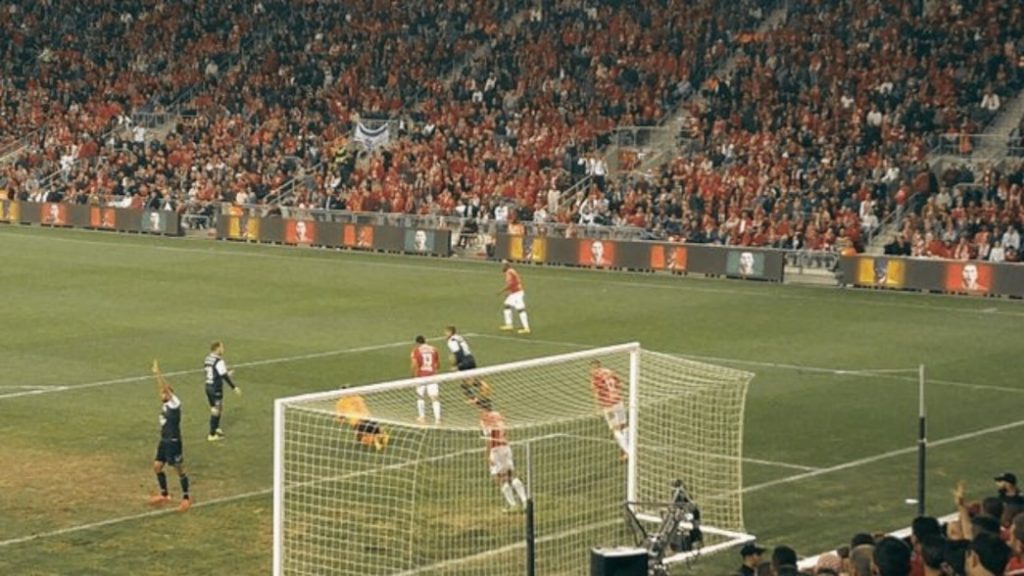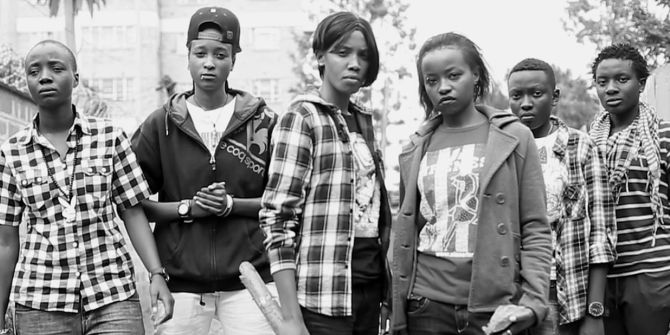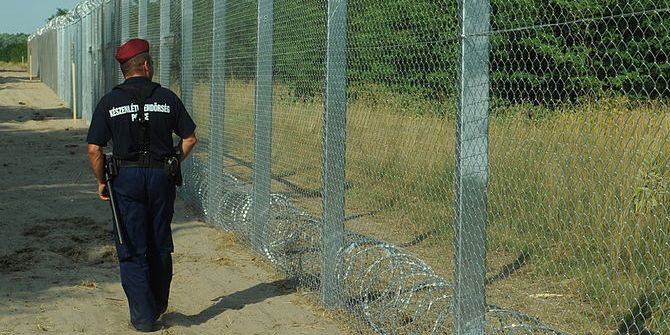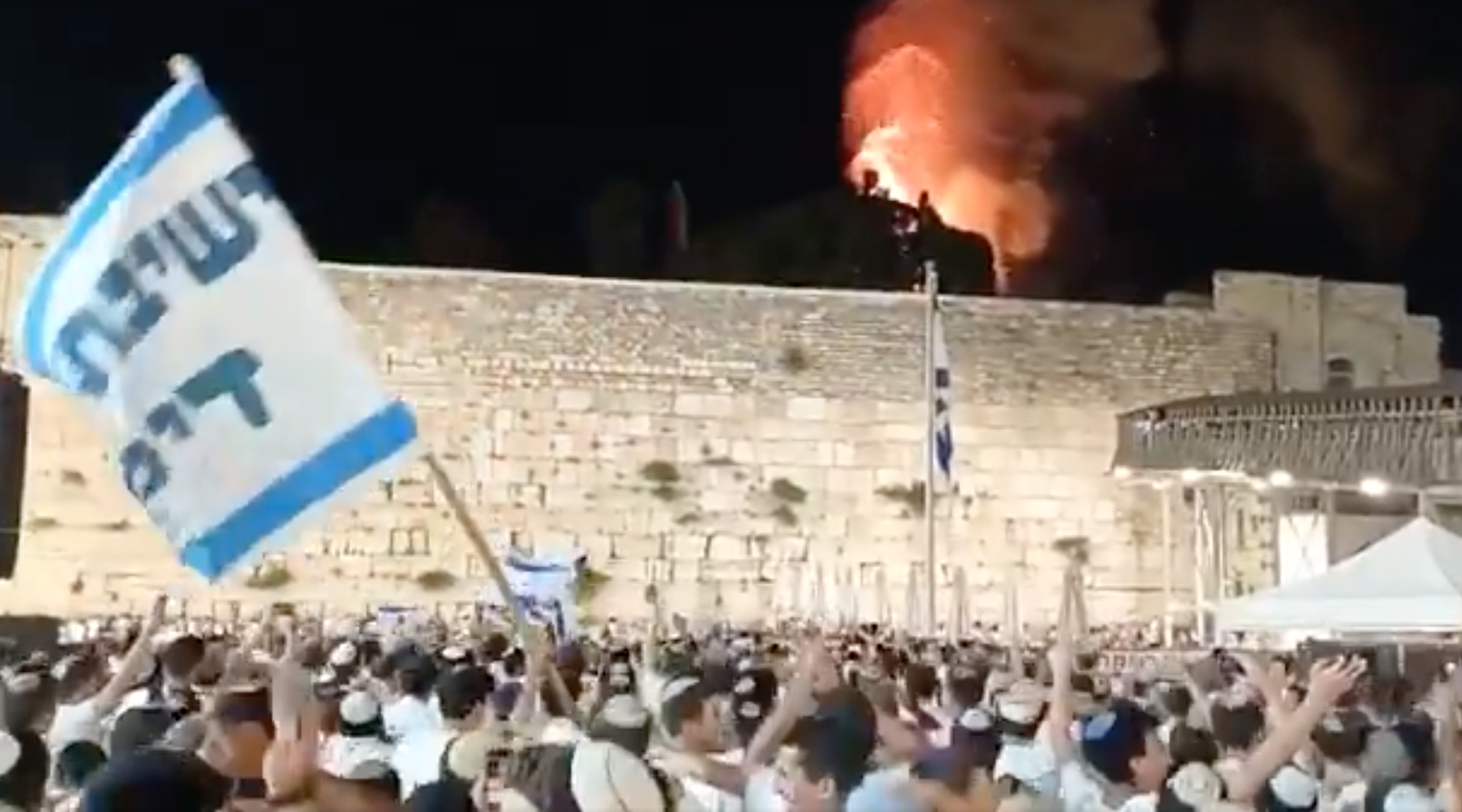In 2004, when the first Palestinian football club won an Israeli state championship, they received congratulations from both Ariel Sharon and Yasser Arafat while a battle raged in the Gaza strip. Today, Rebecca T. Alpert looks at how football has inspired and provoked debate around religion and citizenship in the region.

The story of the Palestinian Israeli football team from the town of Sakhnin illustrates the way football functions politically in the conflict between Israel and Palestine. B’nei Sakhnin is the most successful of the Palestinian Israeli teams, and the only one to ever attain consistent membership in Israel’s premier league. Unlike most Palestinian Israeli teams that are underfunded by impoverished local governments, Sakhnin has gained outside funding from Qatar, an attractive stadium, and success on the pitch.
In 2004, on the day when B’nei Sakhnin became the first Palestinian club to win an Israeli state championship, the team received congratulations from both Ariel Sharon and Yasser Arafat, even as a battle raged in the Gaza strip. It was a Palestinian Israeli player from Sakhnin, Abbas Suan, who in 2005 secured Israel’s first chance at qualifying for the World Cup with an equaliser against Ireland. Suan became a hero throughout Israel, even though he refused to sing the Israeli national anthem, Hatikvah, at the start of any match he played.
With these positive trends, Israel advertised football as a site to build bridges across differences, and for Palestinian Israelis to gain acceptance from Jewish Israelis. Israel used the integration of Palestinians into professional football as part of their campaign to present Israel as a society that is open to and supports minorities in their midst, and to claim that they are a nation seeking peace. Football became an important element of the larger strategy to improve Israel’s image in the rest of the world, known as “hasbara,” that supporters of Palestine would redefine as “sportswashing.”
The presence of the right-wing Beitar team’s fans however, belies this perspective. To Beitar Ultras, a supporters’ group known as La Familia, the validation of Sakhnin or other Palestinian teams or players is an outrage. Israel is a Jewish state and those who are not Jewish should not be the ones representing it. Matches played between Beitar and Palestinian Israeli teams have often served as a battleground of the conflict.
La Familia want Beitar Jerusalem to be “pure,” meaning Jewish players only. Although a few foreign Muslim players had played for Beitar previously, in 2013 when the club signed two Muslim players from Chechnya, the fans screamed “Death to the Arabs.” For 4 months they vandalised and rioted, chasing the two players back home. In 2018, a new owner began to bring in Muslim players again (and a Nigerian Christian player named Mohamed Ali) hoping to make the team less racist, and the Ultras once again rioted.
Despite this, until the past decade, Palestinian Israelis focused on the achievements of individual players and stayed away from using football matches to validate or press for their national aspirations. That changed after 2011, when Sakhnin’s own Ultras began to display the Palestinian flag and other emblems of protest, while maintaining a political presence on social media. Palestinian Israelis also created a separate Islamic League for those who oppose normalising relations with Jewish Israel in any way.
Palestinians who live outside the 1867 borders in the Israeli occupied territories of the West Bank and Gaza (and the wider Palestinian diaspora) face different challenges. They created their own football league (PFA) in 1986. In 1998 Palestine was officially recognised as a state by FIFA and admitted to the Asian Football Conference (AFC). FIFA was among the first international organisations to recognise Palestine statehood. Israel (IFA) plays in UEFA, the European conference.
Because the Palestinian teams in the PFA originate in the land under Israeli occupation, the government of Israel has power over their travel and has limited their opportunities to play in international competitions by denying them exit visas, including for a qualifying match for the Asian Cup in 2007 and then again for a World Cup qualifying match in 2010. Two of their stadiums have been demolished by the government. Some of the leading players have been identified as terrorists and languish in Israeli prisons. Most have been detained at border crossings, and many died in wars at the hands of the Israeli army.
The Palestine Football Association has unsuccessfully used boycott and protest tactics to fight back by petitioning FIFA to remove the UEFA Under 21 tournament from Israel in 2013, but UEFA denied the request, arguing that sports should not be politicised. In 2015, the PFA requested that FIFA ban Israel from participating in tournaments until they recognise the PFA as the governing body for Palestinian football and shut down six IFA teams in settlement towns on the West Bank arguing that FIFA rules do not allow teams to play on territory of other nations without permission. Fearing that they would not win the vote, in 2017 they withdrew the demand. Palestinian satisfaction came on the pitch that year instead when, for the first time, they came close to Israel (84 and 82, respectively) in the FIFA 2017 global rankings.
As the 2022 World Cup approaches in Qatar, internationally prominent players and teams have used the opportunity to express their support for Palestine in social media posts and displays of the Palestinian flag and other symbols of Palestinian freedom. To show their support, Qatar has listed Palestine, not Israel, on its hospitality website much to the distress of Israelis who plan to attend.
Despite claims to the contrary made by sports organisations, governments, fans, or team owners, sport that takes place on a public stage cannot fail to be political. In the case of Judaism, sport has also been a forum to fight against antisemitism through cultural adaptation, protest, and boycott. If Jews have learned any lesson from the experience of oppression it ought to be to use that lesson as a model for fighting against other forms of ethnic and religious oppression, but that has yet to be the case in the conflict between Israel and Palestine.
NB: ‘Palestinian-Israeli’ is used to differentiate Palestinian citizens of Israel who live inside the green line, not in the occupied territories





